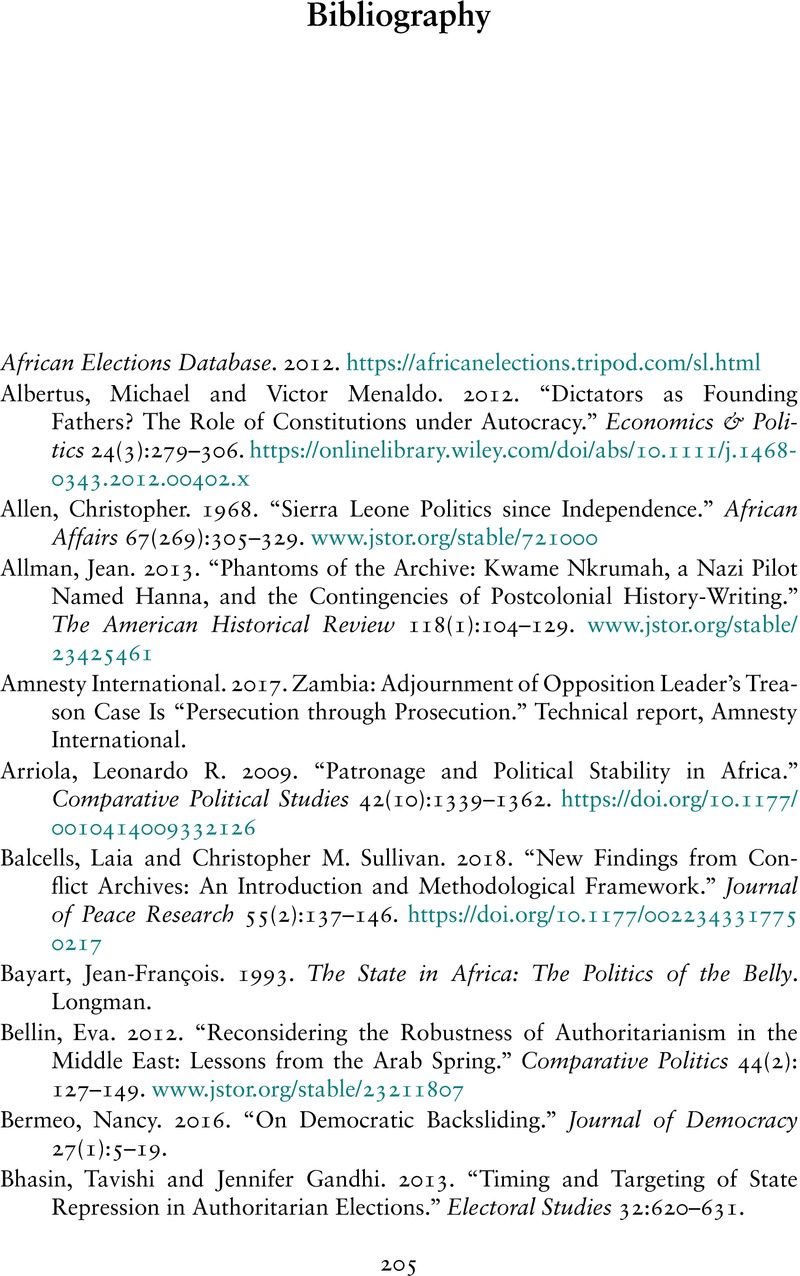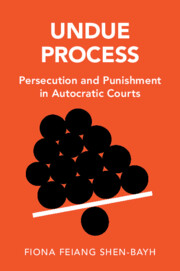Bibliography
Published online by Cambridge University Press: 01 September 2022
Summary

Information
- Type
- Chapter
- Information
- Undue ProcessPersecution and Punishment in Autocratic Courts, pp. 205 - 212Publisher: Cambridge University PressPrint publication year: 2022
